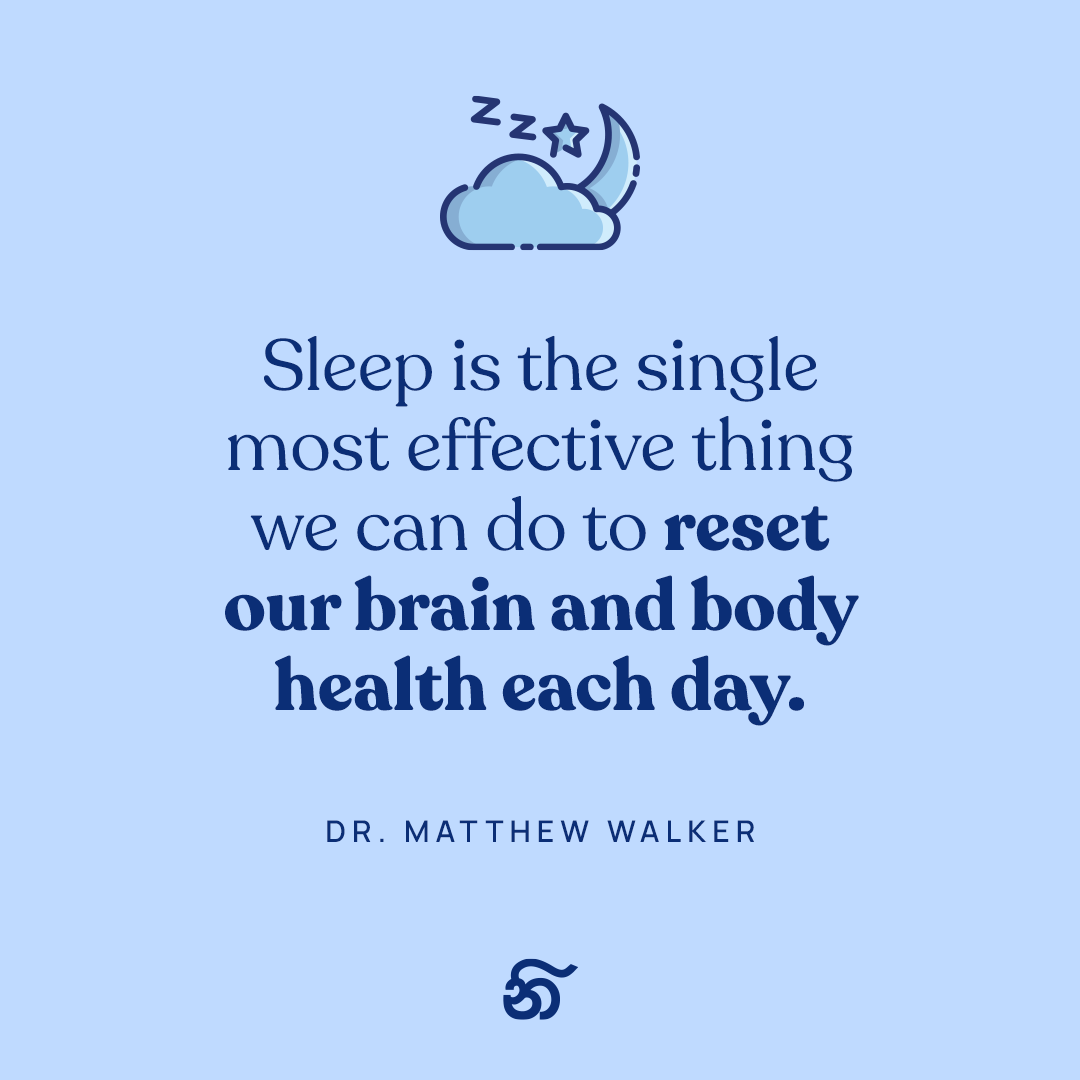
The Power of Sleep: Dr. Matthew Walker's Insight into Restoring Brain and Body Health
Share
In today's fast-paced world, where productivity often takes precedence over rest, the significance of sleep in maintaining optimal health is often overlooked. However, Dr. Matthew Walker, a renowned sleep scientist and author of "Why We Sleep," offers a compelling reminder of sleep's vital role in rejuvenating both the brain and body. His insight, encapsulated in the statement "Sleep is the single most effective thing we can do to rest our brain and body health each day," serves as a beacon of wisdom in our sleep-deprived society.
Understanding the Science of Sleep
Dr. Matthew Walker's assertion is grounded in decades of scientific research that unequivocally demonstrates the profound impact of sleep on our physical and mental well-being. During sleep, the brain undergoes a series of essential processes, including memory consolidation, neural repair, and toxin removal. Furthermore, sleep plays a critical role in regulating hormone levels, supporting immune function, and promoting overall physiological balance.
The Consequences of Sleep Deprivation
Conversely, chronic sleep deprivation, characterized by insufficient or poor-quality sleep, can have detrimental effects on health and performance. Studies have linked inadequate sleep to an increased risk of chronic diseases such as obesity, diabetes, cardiovascular disorders, and cognitive decline. Moreover, sleep deprivation can impair cognitive function, mood regulation, and decision-making abilities, posing significant risks to personal and professional success.
Optimizing Your Sleep Routine
In light of Dr. Matthew Walker's insight, prioritizing sleep should be regarded as a cornerstone of a healthy lifestyle. To harness the rejuvenating power of sleep, consider implementing the following tips into your nightly routine:
-
Establish a Consistent Sleep Schedule: Aim to go to bed and wake up at the same time every day, even on weekends, to regulate your body's internal clock.
-
Create a Relaxing Sleep Environment: Design your bedroom to promote relaxation and comfort, minimizing noise, light, and electronic distractions.
-
Practice Relaxation Techniques: Wind down before bed with calming activities such as reading, meditating, or taking a warm bath to signal to your body that it's time to sleep.
-
Limit Stimulants and Electronics: Avoid caffeine, nicotine, and electronic screens in the hours leading up to bedtime, as they can interfere with your ability to fall asleep.
-
Prioritize Sleep Hygiene: Adopt healthy sleep habits, such as avoiding heavy meals before bed, exercising regularly, and maintaining a comfortable room temperature for optimal sleep quality.
Conclusion: Embracing the Power of Sleep
Dr. Matthew Walker's profound statement serves as a powerful reminder of the transformative potential of sleep in restoring and rejuvenating brain and body health. By recognizing sleep as the ultimate tool for promoting overall well-being, we can prioritize rest as an essential component of our daily routine. By implementing practical strategies for optimizing sleep, we can unlock the full benefits of restorative rest and embrace a life of vitality, resilience, and fulfillment.











